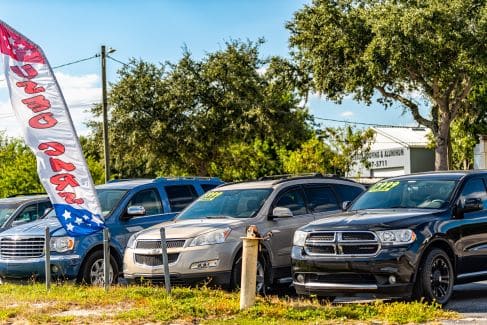The Rising Cost of Cars: A Growing Problem for Middle-Class Americans
Norman Taylor & Associates
June 5, 2023

The idea of owning a car has always been a part of the American dream. However, recent trends suggest that this dream is becoming less accessible to the average American. The high cost of new cars drives people away from the market, and many are settling for used cars instead.
Unfortunately, this trend has been building up for a long time and has reached a point where even those with good jobs find it difficult to afford a new car. Here’s what you need to know.
Recent Decline in New Car Sales
According to a Washington Post article, a 2021 Consumer Expenditure Survey found that spending on new cars by the lowest 20% of earners dropped to its lowest level in 11 years. Meanwhile, spending on new cars by the top 20% of earners hit its peak.
In 2019, 19 million new cars were sold in the United States. In 2022, that number dropped to 13.9 million – a decrease of 27%. Recent car sales in California were 1.67 million in 2022 compared to 1.86 million in 2021 and 1.89 million in 2019.
What’s Causing Fewer New Car Sales?
- Higher Interest Rates
- Chip Shortages
- Electric Vehicle Production
On the demand side, rising interest rates have made car loans more costly. For example, data from Edmunds states that the average monthly payment for a new car reached $730 in mid-2022 — up from $686 in mid-2021.
But even if shoppers can snag a decent interest rate, the supply of cars available for purchase has been trending more expensive.
Manufacturers have funneled resources into souped-up versions of pricey models and are cutting back on cheaper options. This is partly due to the global chip shortage, which has forced automakers to ration components, reserving them for their most profitable, high-end vehicles.
Automakers have also faced steeper production costs due to factory closures in China during the pandemic and ongoing labor shortages. To guard against future shortages, manufacturers have started holding more parts in inventory, a strategy that raises costs.
The auto industry is investing big money to overhaul factories to produce electric vehicles, which is a major expense.
Electric cars are more expensive than gas-powered cars because they require different parts and manufacturing processes. Car companies are passing on the cost of these investments to consumers through higher prices.
The Result
The bottom line is that car companies have been shifting their focus to producing more high-margin SUVs and trucks because these vehicles are more profitable than affordable cars.
As a result, affordable cars have been disappearing from the market. For example, the Chevy Spark, the cheapest Chevy car at $13,600, has been discontinued. Now, Chevy’s most affordable models cost more than $20,000.
This trend isn’t limited to Chevy and is happening across the auto industry. To put things into perspective:
- In 2017, 11 models were selling for under $20,000. In 2023, there are only two.
- The number of models selling for over $60,000 has increased from 61 to 94.
Ultimately, the average price of a new car in the United States has increased by 30% since March 2020 – widening the gap between those who can afford the latest models and those who can’t.
Used Cars and Lemon Law
Used cars are more likely to have problems than newer vehicles because they’ve been used longer.
Lemon laws vary by state but generally allow consumers to receive a refund or replacement if their vehicle has been in the shop multiple times or for a specific duration. The bad news is, as of late October 2024, California lemon law protections no longer apply to used cars in cases against auto manufacturers. Therefore, you can’t get a refund or replacement, regardless of whether your used vehicle still has active warranty coverage or has had multiple warranty repairs.
Overall, if you’re considering purchasing a used car, it’s important to research its condition, ask about its history and accidents, and have a mechanic inspect it if you’re unsure.
Contact Our California Lemon Law Firm Today
If you think you might have bought a lemon, contact our experienced lemon law attorneys today! Our head attorney, Norman Taylor, focuses his practice solely on California lemon law and is the author of the definitive book used in the state’s cases.
We can help you take legal action and protect your consumer rights. Call 818-244-3905 to schedule a free case review.
Schedule my consultation
